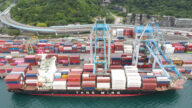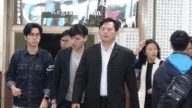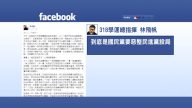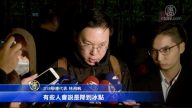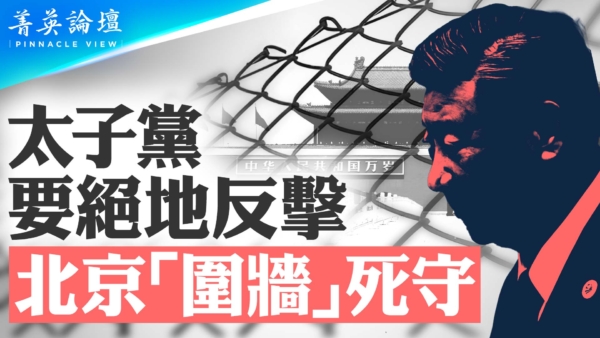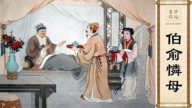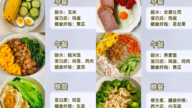【新唐人2014年03月26日讯】台湾学生占据国会,反对立法院通过《海峡两岸服务贸易协议》的抗争,已经进入第8天。经过前一天部分学生因转战行政院,被警方强制驱离后,目前,学生“反服贸”的这场抗争,仍回到立法院议场。25号上午,台湾的“中华民国”总统马英九释出善意,愿意接见学生,学生也呼吁“公开对话”,并从“两岸协议监督法制化”优先谈起。但当天晚间,学生再开记者会婉拒了总统府的邀请。
台湾“反服贸”学生代表下午3点开记者会回应总统﹕愿意与府会对话,但仍要从两个问题上做具体的讨论。第一,“两岸协议监督”是否有法制化的必要﹔第二,在《服贸协议》审查之前,是否应先完成“两岸协议监督”的法制化。
有很多台湾民众反对“服贸”开放,是基于﹕两岸产业在开放投资的政策底下,弱势族群的权益将被牺牲。如医疗方面的老人和残障照顾,一旦被中国大陆投资者垄断,台湾这批弱势族群的权益,只能按照资方提供的服务标准,穷人的权益恐怕会被牺牲。
又如媒体的垄断,影响的层面更大,牵连台湾政治意识形态及公民言论自由等民主模式的权益。
许多香港人也担忧台湾将成为下一个香港﹗有的香港人认为,《服贸协议》是中共统战台湾的手段,是中共殖民台湾的合法保护罩。
中国资深媒体人高瑜﹕“从大陆对香港的态度,基本上这17年一国两制是失败的,因为越来越看到﹕对法律的独立、媒体,大部分都沦陷了。所以在这种情况下,台湾学生看到了这一点。”
香港“岭南大学”中文系助理教授陈云在博客评论说﹕“台湾的《服贸协议》,考验台湾人的本土意识。《服贸协议》一旦通过,中共将倾尽资金,收购台湾,而台湾拥有资产的大财阀和小业主,都会沾到利益,自己套现之后,哪管洪水滔天,台湾企业将为大陆而生产,房产为大陆人拥有,台湾人将无立锥之地,万劫不复。”
高瑜﹕“通过这几年的发展,我觉得台湾认清了不能以经济来代替政治。大陆政治上面的高压独裁,也影响到经济,像这种服贸协定,也影响到它的通过,所以我觉得这是一国两制的失败。”
旅美经济学家何清涟在《美国之音》提出,“台湾已经民主化,实行自由市场制度,没有行业准入的各种政治限制。而中国的情况不一样,是在政府管控下的半行政化干预市场经济。这种体制的国家与任何民主国家的交流,很容易凭借制度的不同,获取利益。”
何清涟以媒体业为例表示,“2001年中国加入WTO之后,承诺今后数年内逐步放开。此后,中国在海外大肆推行‘大外宣’计划,《新华社》多语种媒体在美、欧及全世界相继落地并设立记者站,收购英文媒体,各种外宣刊物如雨后春笋。以美国为例,所有由中共控制的媒体(包括网站)可以自由的批评美国的一切,从政治、外交政策到经济社会。”而“外国媒体不但没有得到相同的待遇,反而受到严厉控制。”
与此同时,现年84岁,旅居美国的台湾“中央研究院”院士余英时,24号也发文力挺台湾“反服贸”学生。
他表示,“中共一直在千方百计的企图摧毁台湾的民主”,而“民主是台湾安全的最大保证”,“在民主体制之下,人民和政府之间往往存在分歧和冲突,但不可能是敌对的。因为不民主、非民主或反民主的政府已不复有存在的空间。”大陆“通过经济以发挥政治影响的障眼法”已被识破。
余英时提醒,“台湾的人民和政府都必须把警惕提到最高的程度”。
目前,台湾有多所大学的师、生甚至校长力挺“反黑箱服贸学运”,已有50多大学系所响应“罢课”。
采访/陈汉 编辑/周平 后制/孙宁
Taiwanese Students Welcome Negotiations, Appeal to Legislate
First; Pass Trade Agreement Later
It has been eight days since Taiwanese students occupied
parliament in protest of the Cross-Strait Service Trade Agreement.
Some students were forced to leave by the police
at the Executive Yuan yesterday, spurring students to return
to the Legislative Yuan in protest.
On the morning of the 25th, Taiwan President Ma Ying-jeou
offered to meet with students and students called for an
“open dialogue" to talk about the cross-strait
Service Trade Agreement first.
At 3 p.m., in response to the President, student representatives
held a press conference to express their welcoming
of the dialogue with the government.
They mentioned that they still want to discuss two points
with the government:
First, is there any legal need for the Cross-Strait Service
Trade Agreement?
Second, before going through the Cross-Strait
Service Trade Agreement, can the Cross-Strait
Agreement Watch be made legal?
The reason many people are against the Trade Agreement
is because this agreement is based on sacrificing
Vulnerable Group’s legal right under
an open investment interests.
For example, once the elderly and disabled medical care
are monopolized by Chinese mainland investors,
the disadvantaged groups in Taiwan can only act
as the employer’s standards and the interests
will be sacrificed.
Another example is the influence of media monopolization
will involve democratic interests including Taiwan political
ideology and the citizens’ freedom of expression.
Many Hong Kong people also worried that Taiwan will
become the next Hong Kong.
Some Hong Kong people believed the trade agreement
is the way to unite Taiwan by CCP and CCP’s colonial
legal protection cover.
Chinese senior media people Gao Yu: “Based on
Hong Kong’s situation, we can tell it is a seventeen year
failure of the ‘one country, two systems’.
As you can see, more and more are occupied,
including legal independence and media.
Taiwanese students already noticed it."
Hong Kong Lingnan University assistant Professor of Chinese
department Chen Yun’s blog: “Taiwan’s trade agreement
is a test to the indigenous awareness of Taiwanese.
Once the trade agreement passed, the CCP will purchase
Taiwan using all money.
The big and small business owners will benefit
after cashing in without caring about anything.
Taiwanese enterprises will produce for Mainland;
real estate will be owned by Mainland people; Taiwanese
will have no place to stay."
Gao Yu: “Through years of development, I believe Taiwan
recognizes that the economy can’t take the place of politics.
The high-pressure mainland political dictatorship also affects
the economy and the pass of the trade agreement.
So I think this is the failure of ‘one country ,two systems.'"
US economist He Qinglian told the VOA that Taiwan
has been democratic and there is no political restraint
of trade access under free market system.
In China, the economy is under
semi-administrative control.
It’s easy for this country to access benefits through
communication with any democratic country relying on the system."
He Qinglian exemplified the media industry and said,
“When China joined the WTO in 2001, they promised
they will gradually open up.
Following that, the CCP promoted a big propaganda plan
to establish the reporter station for Xinhua News Agency
multilingual media in the United States, Europe and all
over the world.
The purpose being to purchase English media with
the publication of various foreign publicities.
In the United States, all media (including websites)
controlled by the CCP are free to criticize everything
from politics, foreign policy to the economy and society.
However, foreign media is under strict control
without the same treatment."
At the same time, 84-year-old, Taiwan Academia Sinica
Yu Ying-shih, now living in the United States, also issued
a document supporting Taiwan’s anti-trade services student
movement on March 24.
He said, “The CCP has been doing everything possible
to destroy Taiwan democracy", and democracy is the greatest
guarantee for Taiwan’s security.
“Under the democratic system, even if there is disagreement
and conflict between the people and the government,
hostilities are minimal or non-existent because there is no
space for non-democratic or anti-democratic government.
The Mainland’s deceitful attempts to influence politics
through economics has been seen through.
Yu Ying-shih reminded that Taiwanese people
and the government must keep on the highest degree of alert."
Currently, a large number of students and teachers,
even principals from 50 Taiwan universities are out on strike
to support the student movement of an anti-black box
Trade Agreement.
Interview/Chen Han Edit/Zhou Ping Post-Production/Sun Ning


